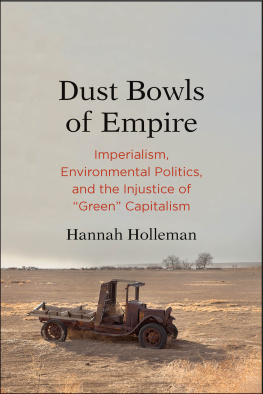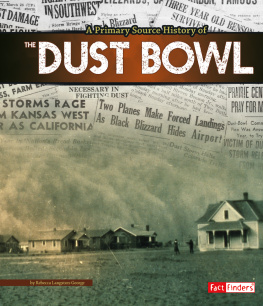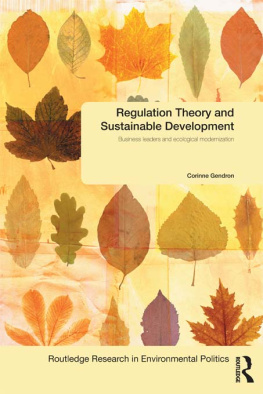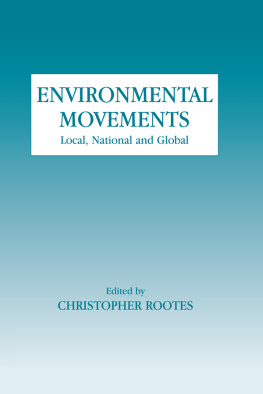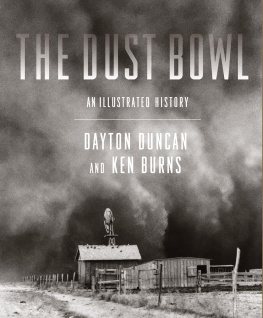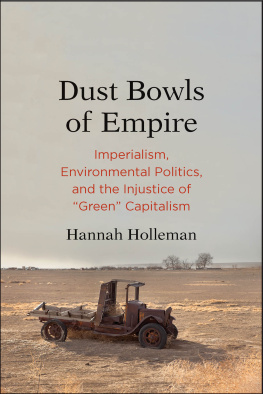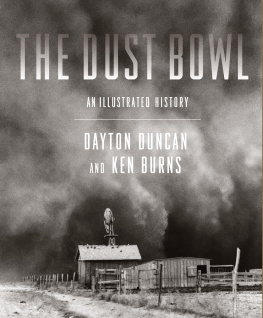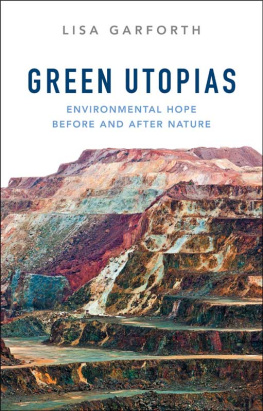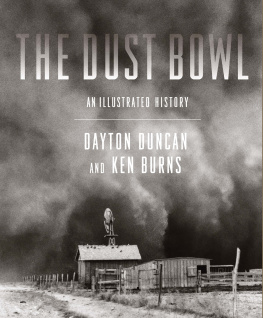YALE AGRARIAN STUDIES SERIES
JAMES C. SCOTT, SERIES EDITOR
The Agrarian Studies Series at Yale University Press seeks to publish outstanding and original interdisciplinary work on agriculture and rural societyfor any period, in any location. Works of daring that question existing paradigms and fill abstract categories with the lived experience of rural people are especially encouraged.
James C. Scott, Series Editor
James C. Scott, Seeing Like a State: How Certain Schemes to Improve the Human Condition Have Failed
Steve Striffler, Chicken: The Dangerous Transformation of Americas Favorite Food
James C. Scott, The Art of Not Being Governed: An Anarchist History of Upland Southeast Asia
Edwin C. Hagenstein, Sara M. Gregg, and Brian Donahue, eds., American Georgics: Writings on Farming, Culture, and the Land
Timothy Pachirat, Every Twelve Seconds: Industrialized Slaughter and the Politics of Sight
Kuntala Lahiri-Dutt and Gopa Samanta, Dancing with the River: People and Life on the Chars of South Asia
Alon Tal, All the Trees of the Forest: Israels Woodlands from the Bible to the Present
Felix Wemheuer, Famine Politics in Maoist China and the Soviet Union
Jenny Leigh Smith, Works in Progress: Plans and Realities on Soviet Farms, 19301963
Graeme Auld, Constructing Private Governance: The Rise and Evolution of Forest, Coffee, and Fisheries Certification
Jess Gilbert, Planning Democracy: Agrarian Intellectuals and the Intended New Deal
Jessica Barnes and Michael R. Dove, eds., Climate Cultures: Anthropological Perspectives on Climate Change
Shafqat Hussain, Remoteness and Modernity: Transformation and Continuity in Northern Pakistan
Edward Dallam Melillo, Strangers on Familiar Soil: Rediscovering the Chile-California Connection
Devra I. Jarvis, Toby Hodgkin, Anthony H. D. Brown, John Tuxill, Isabel Lpez Noriega, Melinda Smale, and Bhuwon Sthapit, Crop Genetic Diversity in the Field and on the Farm: Principles and Applications in Research Practices
Nancy J. Jacobs, Birders of Africa: History of a Network
Catherine A. Corson, Corridors of Power: The Politics of U.S. Environmental Aid to Madagascar
Kathryn M. de Luna, Collecting Food, Cultivating People: Subsistence and Society in Central Africa through the Seventeenth Century
Carl Death, The Green State in Africa
James C. Scott, Against the Grain: A Deep History of the First Civilizations
Loka Ashwood, For-Profit Democracy: Why the Government Is Losing the Trust of Rural America
Jonah Steinberg, A Garland of Bones: Child Runaways in India
Hannah Holleman, Dust Bowls of Empire: Imperialism, Environmental Politics, and the Injustice of Green Capitalism
For a complete list of titles in the Yale Agrarian Studies Series, visit yalebooks.com/agrarian.

Published with assistance from the Mary Cady Tew Memorial Fund.
Copyright 2018 by Hannah Holleman.
All rights reserved.
This book may not be reproduced, in whole or in part, including illustrations, in any form (beyond that copying permitted by Sections 107 and 108 of the U.S. Copyright Law and except by reviewers for the public press), without written permission from the publishers.
Yale University Press books may be purchased in quantity for educational, business, or promotional use. For information, please e-mail (U.K. office).
Set in Janson type by IDS Infotech Ltd., Chandigarh, India.
Printed in the United States of America.
Library of Congress Control Number: 2018938166
ISBN 9780300230208 (hardcover : alk. paper)
A catalogue record for this book is available from the British Library.
This paper meets the requirements of ANSI/NISO Z39.481992 (Permanence of Paper).
10 9 8 7 6 5 4 3 2 1
For Lou Ella and Betty Joe
At the end of the Civil War the US Army hardly
missed a beat before the war to win the West began in
full force. As a far more advanced killing machine and with
seasoned troops, the army began the slaughter of people,
buffalo, and the land itself, destroying natural tall grasses of
the Plains and planting short grasses for cattle, eventually
leading to the loss of topsoil four decades later.
Roxanne Dunbar-Ortiz, An Indigenous Peoples
History of the United States, 2014
The attitude of capitalismindustrial and pre-industrial
toward the earth was imperial and commercial; none of its
ruling values taught environmental humility, reverence, or
restraint. This was the cultural impetus that drove Americans
into the grassland and determined the way they would use it.
Donald Worster, Dust Bowl: The Southern Plains
in the 1930s, 1979
Man-induced soil erosion is taking place today
in almost every country inhabited by civilized man,
except northwestern Europe. It is a disease to which any
civilization founded on the European model seems liable
when it attempts to grow outside Europe....
The white mans burden in the future will
be to come to terms with the soil and plant world, and
for many reasons it promises to be a heavier burden
than coming to terms with the natives.
G. V. Jacks and R. O. Whyte, The Rape of the Earth:
A World Survey of Soil Erosion, 1939
CONTENTS
ACKNOWLEDGMENTS
I thank Jean Thomson Black, my superb editor at Yale University Press, for all her work and insight that helped improve my manuscript. Working with Jean made me feel confident at every step of the way that YUP was the exact right choice of press for me and this book. Also at the press, I thank Michael Deneen, Mary Pasti, Harry Haskell, Jeffrey Schier, and the very helpful reviewers, whose comments in response to my original proposal guided me in important ways as I completed the project. Finally, I thank James C. Scott, faculty editor of the Yale Agrarian Studies Series, for inviting me to include my work in this important scholarly series.
Many, many thanks go to the wonderful members of the Department of Anthropology and Sociology at Amherst College for feedback on earlier versions of this work, as well as encouragement, advice, and friendship throughout the research and writing process. Deborah Gewertz and Frederick Errington deserve special thanks for their friendship, example, and support of my project. They read my work and offered critical feedback, came to my events and talks based on the research presented in this book, invited me into their warm home, introduced me to other scholars, and shared with me their work on a closely related subject. This exchange over the past few years has meant the world to me and contributed to my experiencing a vibrant intellectual life in western Massachusetts. Likewise, my friendship and conversations with Ron Lembo regarding the broader theoretical contours of our work, as well as the major political and social developments in society the past few years and what these mean for us in sociology, have sustained me since my arrival in Massachusetts in ways too numerous to recount. Rons remarkable capacity for maintaining a deep humanity and care for the work we do in the face of the social distancing that occurs in academic institutions encouraged me in those moments the academy felt perhaps too sterile and removed from the lives of most people to be a space for meaningfully envisioning a just and healthy world. He does not conflate professionalization with disconnection and disinterest, or friendship at work with a series of consciously performed, instrumental interactions. For these reasons he embodies in genuine practice the ideas of engaged intellectual and community we frequently theorize but often fail to enact. My appreciation for all of this and more is unbounded. Jerome Himmelstein also played a crucial part in my growth as a scholar over the past few years and was a great support to me, especially in his role as department chair, at critical moments during my time as a new faculty member at Amherst College while I developed this project. Leah Schmalzbauer has been since her arrival an incredible force in encouraging me to think about my work in new ways, as well as about our work as sociologists. She helped me so much as I brought this project to completion and has been a wonderful department chair and colleague in sociology. Chris Dole, Vanessa Fong, Danielle Bessett, Karen Graves, and Amy Cox Hall deserve special thanks. I especially appreciate the community Chris and Joy help us keep. I appreciate Vanessa offering to celebrate every step of the way with our work. My gratitude for Eunmi Mun (now at the University of Illinois) and Nusrat Chowdhury is too great to express in words. There are no two people with whom I have spent more time since moving to Massachusetts, and without them my life, and my time writing this book, could not have been as rich, joyful, intellectually satisfying, or fun. Similarly, Jan Dizard and Robin Dizard are responsible for welcoming me in the warmest way into a broader intellectual community in this region and making my life and time spent writing this book intellectually rich and lovely all around. They read and commented on my work, offered advice, shared historical materials, and always had a place at their table for me, as well as many of my friends, where we could talk through a range of events, ideas, and politics while feasting on something delicious. Jan, as my office neighbor and fellow environmental sociologist, frequently offered great insight, introduced me to important work, and shared ideas. Altogether, I cannot imagine a more supportive departmental environment. Their research and example as engaged intellectuals inspires me, and I feel gratitude every day to have them as colleagues and friends.
Next page
